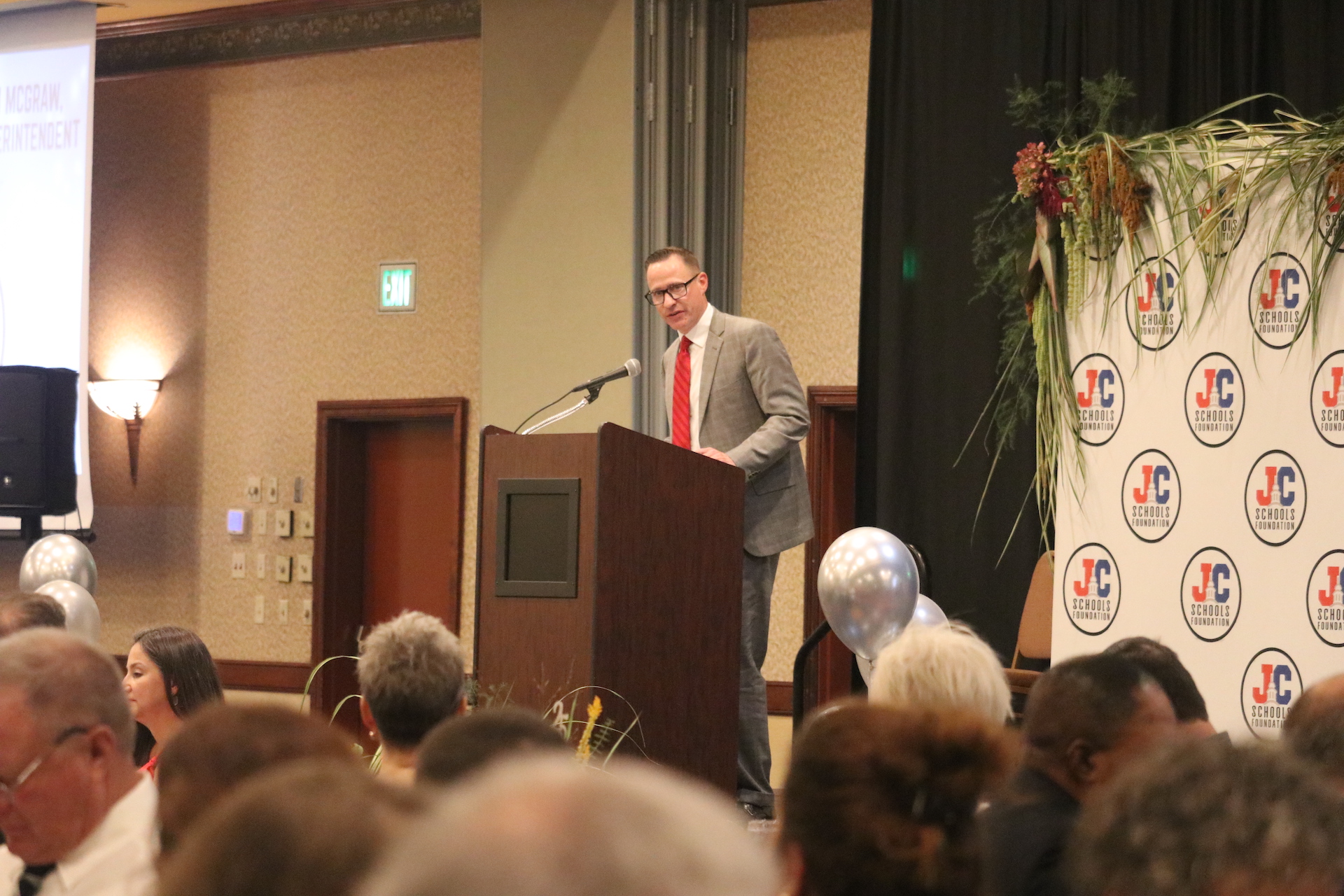The city of Grand Rapids has approved plans for a 15-year-old theater that closed during the pandemic to start its next chapter in Heritage Hill.
The Grand Rapids Planning Commission at its Thursday meeting unanimously approved a special land use request from Jay Harnish, co-founder and president of Dog Story Theater, to open a theater at 340 State St. SE in Heritage Hill.
Dog Story Theater was founded in 2008 and closed its previous location at 7 Jefferson Ave. SE during the pandemic because of the expense of maintaining a lease during lockdown when gatherings were prohibited.
The nonprofit does not have its own troupe but rather hosts other theater companies and performance arts groups, providing a “safe place” for marginalized groups to express themselves, as Harnish previously told Crain’s Grand Rapids Business.
“This is a storefront theater model, and it’s uniquely Grand Rapids in that it’s not just its own theater company … (it) provides access to space for smaller theater companies, for people to put on shows, for playwrights to be able to produce their own show, (or) for actors in college to get together and do a new Shakespeare show,” Harnish told the planning commission Thursday. “It offers that opportunity — an entry level or an easier barrier to get through — to the smaller groups that don’t have a lot of finances to start up.”
In addition to hosting plays, Dog Story’s new location will be used for “small non-amplified orchestral concerts, children’s choirs, performance art, artist galleries, comedy and educational talks,” according to the special land use application.
Proposed public hours of operation for the theater are 7-10:15 p.m. Thursday-Saturday, with private event bookings available 6:30-9:30 p.m. Wednesdays through Saturdays, according to Harnish’s application.
Dog Story will sell concessions but will not serve alcohol except during private, biannual fundraising events, per the planning commission’s conditions of approval.
The venue will maintain a volunteer staff of one to three individuals, including a box office manager, stage manager and production manager/audiovisual engineer.
Planning Commissioners Kristine Bersche and Laurel Joseph both voiced support for the project prior to the vote.
“I think this is a great use of the building. I think it’s appropriate for where it is. … It’s a very walkable space, with plenty of public transportation,” Bersche said.
The project also received letters of support from a resident of the block and the Heritage Hill Association. One resident opposed the project over parking concerns.
Renovations
Dog Story signed a lease on the 1,888-square-foot space in August. The 123-year-old, approximately 3,600-square-foot building is owned by Ling Chen, who also is owner-operator of Beijing Kitchen, at 342 State St. SE in the same building.
Travis Williams, founding principal of Parallel Architects + Builders, is the designing the interior renovations, which will be minimal and include adding a barrier-free single-occupant restroom, janitor’s closet, rear egress doors, performance area with seating, and a backstage area with a dressing room and two bathrooms, per Harnish’s project application.
Plans call for an initial capacity of 68 seats, with a future expansion up to 84 seats.
Harnish said the build-out will include soundproofing to avoid disturbing the neighbors.
Bids have not gone out to contractors yet for the construction.
Dog Story plans to leave the building exterior untouched, except for signage changes, which will need to be approved by the Historic Preservation Commission as the building is in the Heritage Hill historic district.
Parking
Harnish also sought a parking waiver, as the building has no onsite parking, and 0.25 spaces per seat are required for assembly use.
The planning commission granted the request, as the hours for the theater will coincide with low-use periods for parking in the surrounding area. The venue is also near bus lines and other street parking, commissioners said.
“If you go downtown, to the theater at DeVos (Performance Hall), you’re walking many blocks,” Joseph said. “I’m not concerned about the parking here. I think their plan is laid out well. … I think it’s a great use of the space in this location in the city.”
Harnish added that Dog Story Theater has an established relationship with Catholic Charities West Michigan and may be able to use its lot at 40 Jefferson Ave. SE, as performances will occur after regular business hours for the nonprofit.
He also is in talks with the Nottawaseppi Huron Band of Potawatomi Health and Human Services Department about using their parking across the street, at 311 State St. SE.
Harnish estimates initial attendance on show nights will be about 50 people.

 State Sen. Lauren Arthur (D-Kansas City) speaks on the Missouri Senate floor on March 24, 2021 (file photo courtesy of Harrison Sweazea at Senate Communications)
State Sen. Lauren Arthur (D-Kansas City) speaks on the Missouri Senate floor on March 24, 2021 (file photo courtesy of Harrison Sweazea at Senate Communications) Missouri Governor Mike Parson and Columbia Chamber of Commerce president Matt McCormick (left) brief Leadership Columbia participants on March 7, 2023 in Jefferson City (file photo courtesy of the governor’s Flickr page)
Missouri Governor Mike Parson and Columbia Chamber of Commerce president Matt McCormick (left) brief Leadership Columbia participants on March 7, 2023 in Jefferson City (file photo courtesy of the governor’s Flickr page)
